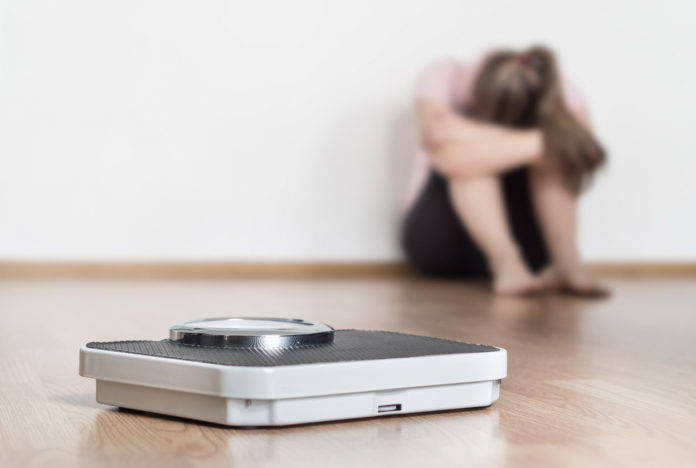Stress eating or emotional eating takes a toll on you – physically, mentally, and emotionally. Yet, many of us experience one or more blocks to stopping stress eating. The cycle with its rollercoaster ride of highs and lows just goes on and on.
There is a common misconception out there that stress or emotional eating comes from some sort of lack of control. But, psychologists disagree.
They believe that if it was something as simple as being able to control when and what we eat or to be able to eat with discipline it would be much simpler to deal with than it actually is. And this includes all types of eating disorders.
For many, emotional eating goes beyond something of choice, and can be a chronic state where the person engaging in this type of behavior does not even realize that it is happening.
Here are some common contributors to this problem that can lead to obesity, ill health and emotional and psychological consequences that include feelings of guilt, shame and low self-esteem.
- Blocks That Prevent Curbing Of Emotional Eating
Lack of Coping Skills
Emotional eaters use food as a coping mechanism. Be it anger, sadness, depression or a recent relationship breakup they reach for food to cope with those feelings.
This indicates the obvious, that there is a lack of healthy coping skills for trauma, negative feelings and life situations in general that the emotional eater fills with food.
In order to begin the road to stopping reactionary and self-defeating behavior, such as, reaching for ice cream when one is sad, it is crucial to learn healthy coping skills that will replace the need for food.
- Food As Pleasure
Some foods are addictive – this is a known fact. But, unfortunately, it is not green vegetables, but, sugar and fat filled varieties of food that cause real brain changes that lead to dependence.
Foods filled with fats and sugar release “feel good” opioids (natural pain killers) in the brain. When these chemicals are released they create euphoria, calm, and soothing feelings that mimic heroin and cocaine.
So, yes, that bowl of ice cream is a like a drug, and many are addicted to it, it is all they have to look forward to after a miserable day.
When this is the payoff of emotional eating it is imperative to find other rewards and pleasures that do not involve food. This can be baths, watching a good movie, reading a good book, having a fun evening out with a friend or anything else that will replace food.
It is also just as important to realize that one will have to learn to cope with and actually tolerate uncomfortable and painful feelings. That is just a simple fact.
- 3. Unawareness
Emotional eating also stems from a profound unawareness of what one is eating and why. And it is rarely for the reason it should be, genuine physical hunger. In psychology the term for this is unconscious eating.
This lack of mindfulness results in overeating in all types of situations, for example, eating just because the food is there, whether one is hungry or not.
In this type of overeating food is taken without hunger, and without any kind of planning.
In this case, it is important for the individual to take note and become mindful of everything they put in their mouth and without judgement.
Once patterns are identified it will become easier to make the conscious effort necessary to stop this type of negative eating pattern.
- Inability To Feel And Tolerate “Bad” Feelings
Many kids grow up conditioned to avoid and not deal with “bad feelings.” When we hurt our knee, or got bullied in school mom gave us cookies and ice cream to feel better. Dads tell their little boys that it’s not okay to cry. If we cried at school we often got teased by other kids.
As kids grow up they learn unhealthy coping mechanisms and basically use anything they can to avoid having to actually feel and deal with feelings of pain, guilt, shame, sadness, anger and depression, and many choose food as that coping mechanism.
It is imperative in this case to learn to tolerate the experience of such feelings, or else emotional eating will remain a problem without a solution.
- Body Hate
Self-defeating behavior rarely makes sense and in the case of emotional eating it is sort of an oxymoron.
If you have trouble losing weight, that stresses you. And stress makes you crave more sweets and other junk foods that are bad for your health. And so on.
Many times emotional eating stems from hating one’s body, but instead of engaging in healthy habits to fix it, the negativity, guilt and shame that people feel as a result of that hatred makes them eat more.
Treatment for cases such as these is almost always best handled by a professional as it can be deep seeded and may require intensive counseling.
- Extremes
Going to extremes can lead to emotional eating and overeating in general. Some of these extremes are exhaustion, hunger and thirst.
When you skip meals you let your blood sugar levels drop so by the time you do get to eat you are so ravenous that you eat way too much.
Thirst often disguises itself as hunger that leads to overeating.
Lack of regular quality sleep can lead to emotional eating as nerves become frazzled and fatigue that mimics hunger can lead one to turn to foods that are not of quality like sugar and fat.
Eating small meals several times per day to balance blood sugars and getting good rest every night results in overall well-being that will eliminate emotional and tired eating that is often out of control.
Final Thoughts
Emotional eating is a big problem for many people, and especially women who find that coping with life’s challenges is a battle that is best fought by finding temporary relief in food.
It takes work, introspection and commitment to get through to the other side.
Get help, there are solutions and a sunnier future waiting on the other side. There are beneficial strategies to beat this problem of stress eating or emotional eating. But knowing what blocks you as an individual is a good step toward finding answers that are best for you.








